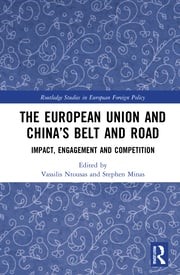France, China and the BRI: The challenge of conditional engagement

Moving away from its traditional low-profile attitude, China has gradually shifted to a muscular foreign policy in the wake of the 2008 global financial crisis and the resulting change in the global balance of power.
The Belt and Road Initiative (BRI) is the latest expression of the country’s rising assertiveness and willingness to play a more central role on the global stage. In response to this rising assertiveness, the last few years have seen a clear shift in France’s approach to China away from what may have been called naivety and towards more firmness. As for China’s BRI, although French authorities are favorable to its overall objective of connectivity enhancement, they refuse to endorse the project in its entirety. Following a logic of conditional engagement, they insist on compliance of BRI-related connectivity projects with the provisions of the Paris Agreement on Climate Change as well as with the G20 operational guidelines for sustainable financing. Moreover, French authorities tend to favor punctual cooperation in third markets. Interestingly, this tougher French stance has not led to any pushback from Beijing so far; far to the contrary, there are even signs that mild pressure has paid off, with China gradually integrating some widely agreed principles. However, whether these commitments will become reality remains to be seen. In this respect, the signals sent by China during the recent Covid-19 pandemic, with a more confrontational attitude, do not bode well for the future of the relationship.

Available in:
Regions and themes
ISBN / ISSN
Share
Related centers and programs
Discover our other research centers and programsFind out more
Discover all our analyses
RAMSES 2024. A World to Be Remade
For its 42nd edition, RAMSES 2024 identifies three major challenges for 2024.
France and the Philippines should anchor their maritime partnership
With shared interests in promoting international law and sustainable development, France and the Philippines should strengthen their maritime cooperation in the Indo-Pacific. Through bilateral agreements, expanded joint exercises and the exchange of best practices, both nations can enhance maritime domain awareness, counter security threats and develop blue economy initiatives. This deeper collaboration would reinforce stability and environmental stewardship across the region.

The China-led AIIB, a geopolitical tool?
The establishment of the Asian Infrastructure Investment Bank (AIIB) in 2016, on a Chinese initiative, constituted an attempt to bridge the gap in infrastructure financing in Asia. However, it was also perceived in the West as a potential vehicle for China’s geostrategic agendas, fueling the suspicion that the institution might compete rather than align with existing multilateral development banks (MDBs) and impose its own standards.
Jammu and Kashmir in the Aftermath of August 2019
The abrogation of Article 370, which granted special status to the state of Jammu and Kashmir (J&K), has been on the agenda of the Bharatiya Janata Party (BJP) for many decades.







